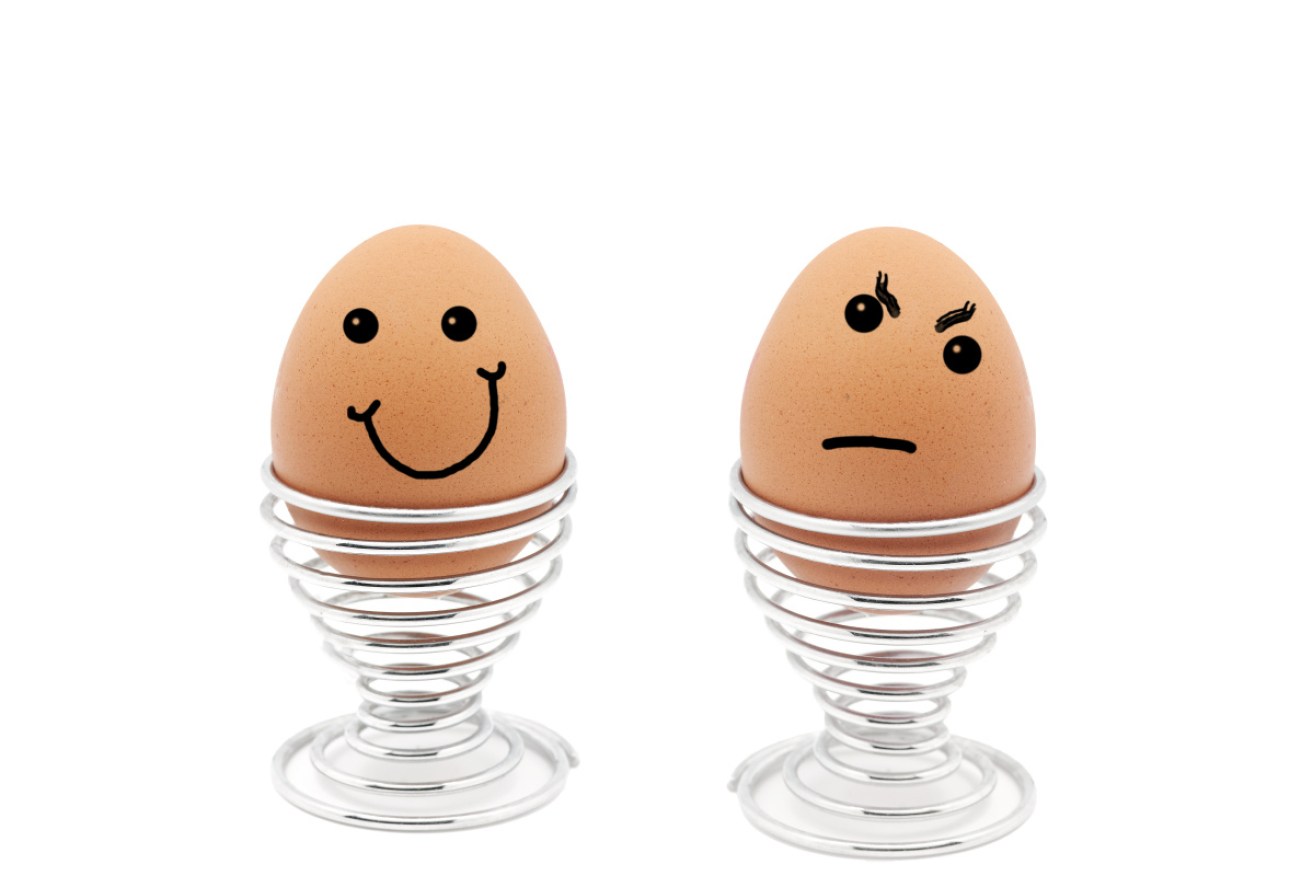Kindness beats beer or brooding when blowing off that bad mood


Making yourself feel better on a blue day might take nothing more than being a good egg. Photo; Getty
Desperate to blow off that filthy mood that has everyone around you walking on eggshells? Forget the glass of wine, bottle of whisky, barrel of beer. And forget just sitting in the corner feeling sorry for yourself.
Get up, start walking around the neighbourhood, and perform a few random acts of kindness – and simply wishing well – to strangers.
New research suggests you’ll be feeling better in about 12 minutes.
An experimental search for what works best
“Walking around and offering kindness to others in the world reduces anxiety and increases happiness and feelings of social connection,” said Douglas Gentile, professor of psychology at Iowa University, in a prepared statement.
“It’s a simple strategy that doesn’t take a lot of time that you can incorporate into your daily activities.”
Dr Gentile and two colleagues tested the benefits of three different techniques intended to reduce anxiety and increase happiness or wellbeing.
They did this by having student volunteers walk around a building for 12 minutes and practice one of the following strategies:
Loving-kindness: Looking at the people they see and thinking to themselves, “I wish for this person to be happy”. Students were encouraged to really mean it as they were thinking it.
Interconnectedness: Looking at the people they see and thinking about how they are connected to each other. It was suggested that students think about the hopes and feelings they may share or that they might take a similar class.
Downward social comparison: Looking at the people they see and thinking about how they may be better off than each of the people they encountered.
The study, published in the Journal of Happiness Studies, also included a control group in which students were instructed to look at people and focus on what they see on the outside, such as their clothing, the combination of colours, textures as well as makeup and accessories.

It doesn’t take a psychologist to show that drinking will probably make a bad mood worse. Photo: Getty
All students were surveyed before and after the walk to measure anxiety, happiness, stress, empathy and connectedness.
The researchers compared each technique with the control group and found those who practiced loving-kindness or wished others well felt happier, more connected, caring and empathetic, as well as less anxious.
Feeling sorry for someone doesn’t cut it
The interconnectedness group was more empathetic and, well, connected.
Downward social comparison showed no benefit, and was significantly worse than the loving-kindness technique.
“At its core, downward social comparison is a competitive strategy,” Dr Dawn Sweet, senior lecturer in psychology said.

Dr Nicholas Hookway, Tasmanian kindness researcher and sociologist Photo: University of Tasmania
“That’s not to say it can’t have some benefit, but competitive mindsets have been linked to stress, anxiety and depression.”
The researchers also examined how different types of people reacted to each technique, and what they found came as something of a surprise.
They expected those who were naturally mindful to benefit more from the loving-kindness strategy, also anticipating narcissistic types might to have a hard time wishing for others to be happy.
Even selfish people benefited
“This simple practice is valuable regardless of your personality type,” said Lanmiao He, a graduate student and part of the experimental team.
“Extending loving-kindness to others worked equally well to reduce anxiety, increase happiness, empathy and feelings of social connection.”
Dr Nicholas Hookway is Senior Lecturer in Sociology at The University of Tasmania. His research focuses on how morality, identity and giving behaviours are being reshaped by wider social change. A long-running project looks at how kindness is socially distributed among different age groups.
Regarding the Iowa study, he told The New Daily: “I’m not surprised that kindness reduces a range of modern ailments – anxiety, depression – because it expresses something fundamental, that we are relational and interdependent human beings.”
He said there was an “infrastructural quality” to kindness that is barely noticed but fundamental.
“Like roads or electricity, everyday acts of care and support are both banal and deeply significant, often unnoticed and invisible but key to making society possible,” Dr Hookway noted.








